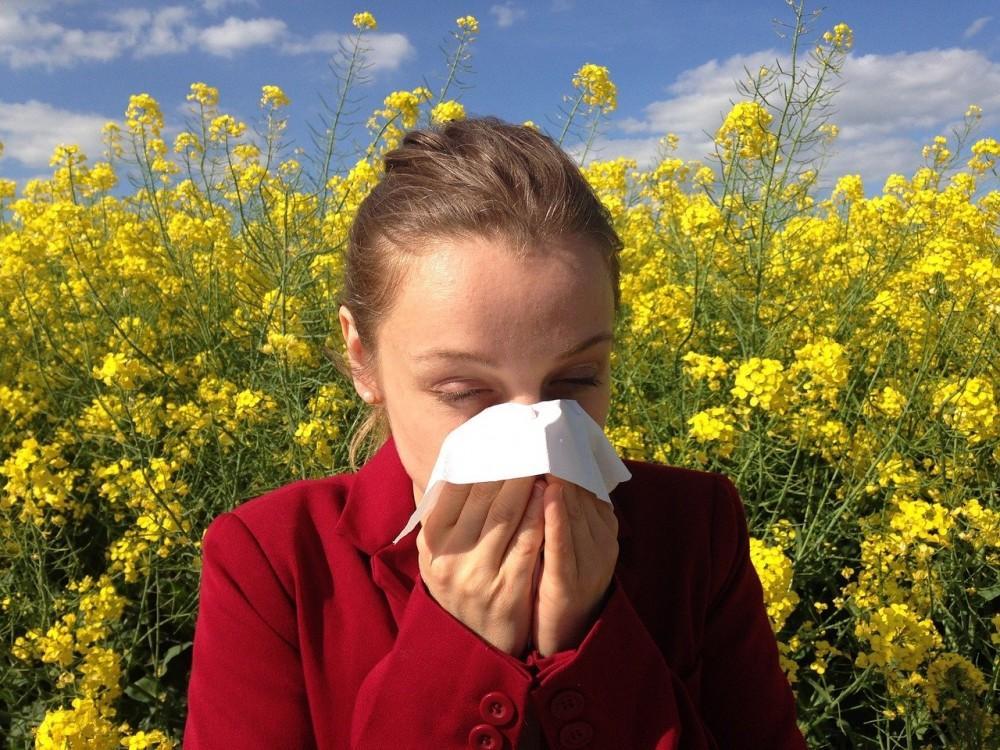Insomnia is a silent killer. With time and without treatment,...
Read MoreAllergies affect more than 50 million people in the United States. The fall season in Texas begins in early September and is followed by the dry winter season in December. For people who have allergies, this can be a painful time of the year.
Let’s take a deeper look at seasonal allergies in Texas and how to treat them.
What Are Seasonal Allergies?
Experienced by 10 and 30 percent of all adults in the United States, seasonal allergies are allergies that occur during any season around the year. These occur mainly due to the spores released by mold and pollen released by certain plants, trees and weeds to pollinate and fertilize other plants. These spores and pollen particles drift in the air and enter our bodies, activating our defense mechanism.
The two worst seasons for seasonal allergies, also known as “hay fever,” across the U.S. are fall and winter.
Symptoms of Seasonal Allergies in Texas
Many people confuse seasonal allergies with having a cold or flu. If you have any of the following symptoms, there is a high chance that you are experiencing a seasonal allergy and should get yourself checked:
- Itchy eyes/nose/throat
- Watery discharge from the nose
- Stuffy nose
- Ear infection
- Stuffed sinuses
- Headaches
- Sneezing
- Watery eyes
- Shortness of breath
- Coughing
- Wheezing
Common Seasonal Allergies in Texas
San Antonio, McAllen and Houston are some major cities in Texas that have been ranked as the worst places for seasonal allergies in the United States. Even though Dallas is not on the list, it is still affected by Texas seasonal allergies. Let’s take a look at some of the most common allergens:
1. Ragweed Pollen
Ragweed is a plant that can produce up to one billion little pollen grains. These grains are lightweight and can float effortlessly in the air for up to 400 miles. The Dallas Forth-Worth area has been ranked amongst one of the top 5 worst places for ragweed allergens.
The increased heat levels and carbon dioxide emissions in Texas have caused an extension in the ragweed allergy season. When these pollen grains enter your body, they cause congestion, watery and itchy eyes and nose and wheezing.
2. Cedar Tree Pollen
Cedar fever is quite a thing in Texas. Even though the trees create a beautiful fall vibe across the state, they release pollen during winter. When you inhale this pollen, your immune system is triggered and causes an inflammatory response in your body. Some common symptoms of cedar fever include a slight increase in body temperature, sore throat, sneezing, fatigue, sinus pressure and red eyes.
3. Grass Pollen
Just like ragweed and cedar trees, grass releases micro pollen grains into the atmosphere to fertilize other plants. The grass allergy season in Texas usually begins in early March and continues till mid-October. Ryegrass, Timothy grass, Bermuda grass and some types of weeds are some common allergens which trigger many people.
4. Mold
Mold spores enter your body from the atmosphere via your nose. They can also reach the lungs and trigger your asthma. Like other allergens, mold spores can cause hay fever symptoms like congestion, runny nose, watery eyes, itching and dry skin.
Natural Ways to Defeat Texas Seasonal Allergies
- Cleanse your nasal passages more often.
- Drink apple cider vinegar with water and lemon juice to break up mucus and boost the immune system.
- Add essential oils to your bath water or tea to reduce allergy symptoms.
- Clean your house regularly to get rid of accumulated dust, spores and pollen.
- Strengthen your immune system by managing your stress levels through self-care activities.
To Sum It Up
Protect yourself and your loved ones this fall by taking preventative measures against Texas seasonal allergies. Most allergies can be treated at home in natural ways. However, some are more serious and can continue to annoy you for weeks. We recommend visiting a doctor immediately if your symptoms persist. Health One Family Medicine offers allergy testing at our facility which accurately tests which substances your body is allergic to. Head over to our website to book your appointment or call us at (469)262-5762.

